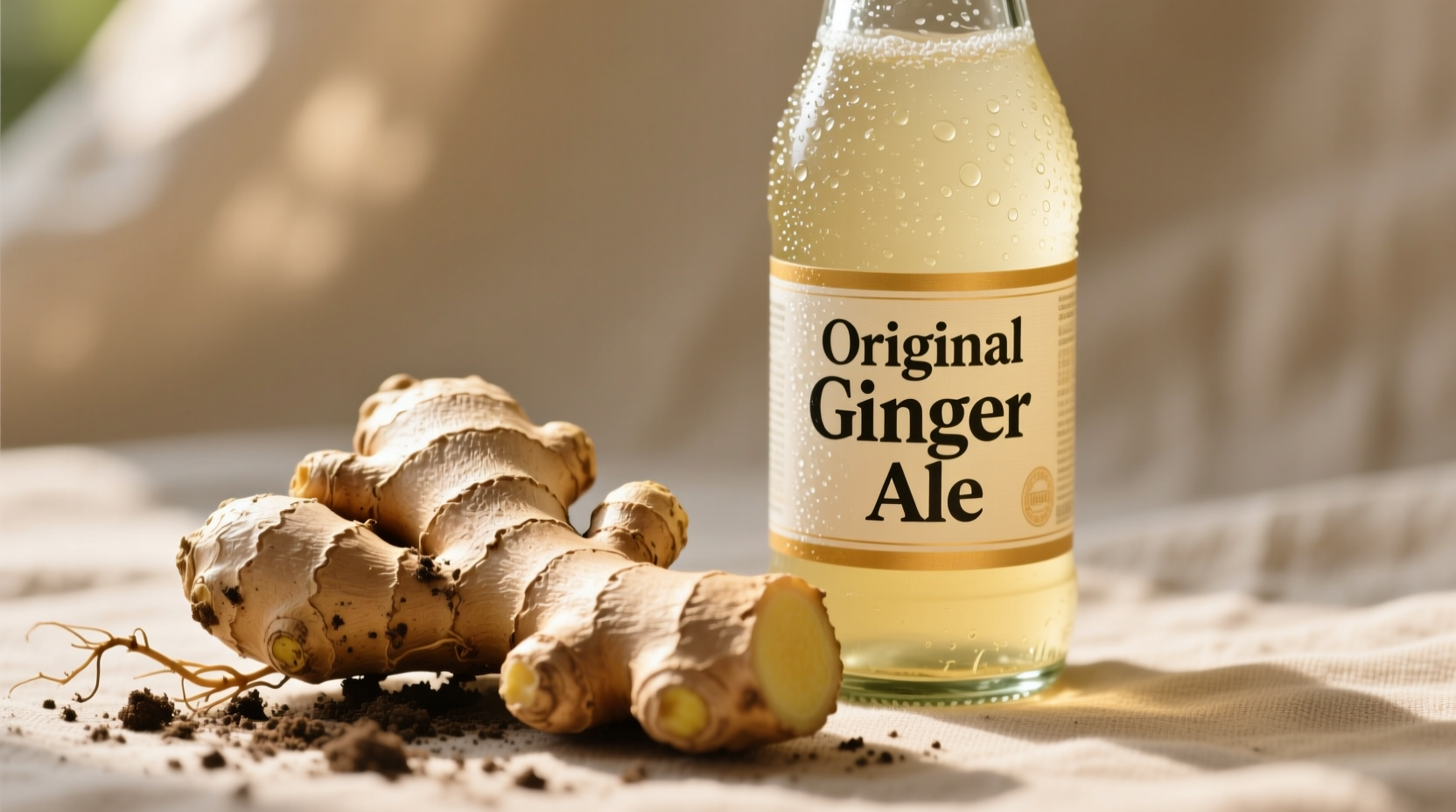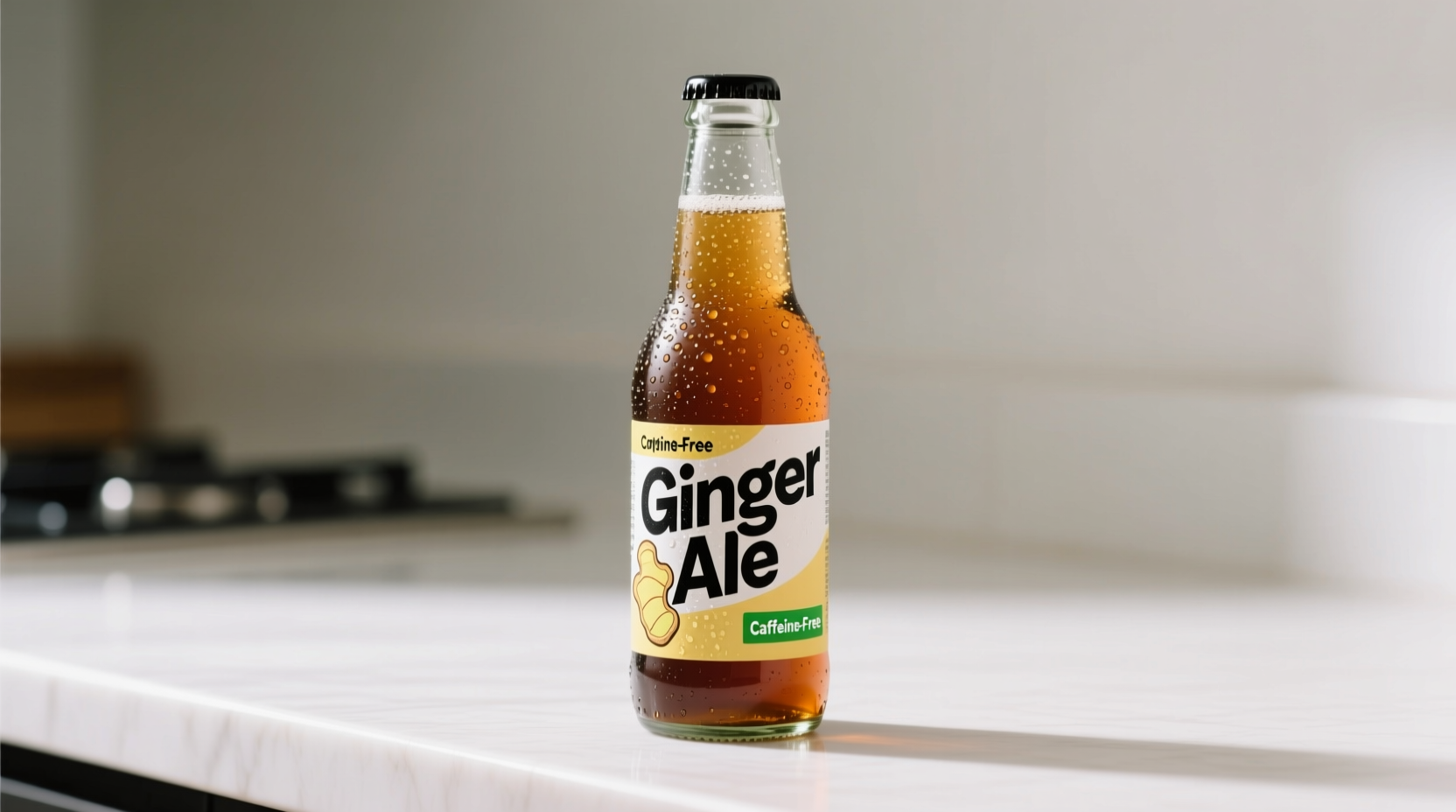Understanding beverage ingredients matters more than ever as consumers become increasingly mindful of what they drink. Whether you're monitoring caffeine intake for health reasons, seeking alternatives for children, or simply curious about your favorite beverages, knowing exactly what's in your ginger ale provides peace of mind and helps you make informed choices.
Why Ginger Ale Typically Contains No Caffeine
Ginger ale's formulation differs significantly from many popular soft drinks. Unlike colas and energy drinks that rely on caffeine for flavor enhancement and stimulant effects, ginger ale's primary flavoring comes from ginger root extract. The traditional manufacturing process involves carbonating water with ginger flavoring, sweeteners, and citric acid—none of which naturally contain caffeine.
The U.S. Food and Drug Administration requires clear labeling of caffeine when added to beverages, and major ginger ale manufacturers consistently list their products as caffeine-free. This transparency helps consumers quickly identify suitable options without extensive label scrutiny.
Major Ginger Ale Brands Compared
| Brand | Caffeine Content | Key Ingredients | Special Notes |
|---|---|---|---|
| Canada Dry | 0 mg per 12 fl oz | Carbonated water, high fructose corn syrup, ginger extract | Original formula since 1904 |
| Schweppes | 0 mg per 12 fl oz | Carbonated water, sugar, ginger root oil | Includes both regular and diet varieties |
| Vernors | 0 mg per 12 fl oz | Carbonated water, sugar, ginger, caramel color | American-style ginger ale with stronger ginger flavor |
| Reed's Strongest | 0 mg per 12 fl oz | Carbonated water, ginger root, cane sugar, lemon juice | Natural craft ginger beer with higher ginger content |
When Ginger Ale Might Contain Caffeine
While traditional ginger ale remains caffeine-free, certain specialty products blur these boundaries. Some craft ginger beers and newer beverage hybrids may combine ginger with other ingredients that contain caffeine. Always check labels for products that:
- Combine ginger with green tea or yerba mate
- Market themselves as "energy ginger" beverages
- Include additional botanicals known to contain stimulants
The USDA FoodData Central database confirms that standard ginger ale contains no detectable caffeine levels. However, specialty products like ginger kombucha or ginger-based energy drinks often list caffeine content ranging from 15-50 mg per serving, depending on additional ingredients.

Reading Labels for Caffeine Content
When examining beverage labels, look for these specific indicators:
- "Caffeine-free" statement on the front panel
- Ingredients list without coffee extract, tea extracts, or guarana
- Nutrition facts panel showing 0mg caffeine
- Absence of terms like "energy blend" or "stimulant boost"
Be particularly cautious with products labeled "ginger beer" as some craft varieties may include additional ingredients. Traditional ginger beer (the non-alcoholic version) remains caffeine-free, but newer market entries sometimes blend ginger with caffeinated components for functional beverage claims.
Why This Matters for Specific Groups
Caffeine sensitivity varies significantly among different populations. The American College of Obstetricians and Gynecologists recommends pregnant women limit caffeine to 200mg daily, making caffeine-free options like ginger ale valuable alternatives. Children's developing systems also respond differently to stimulants, with many pediatricians suggesting complete avoidance of caffeine for young children.
For individuals managing anxiety disorders or certain cardiac conditions, eliminating unnecessary caffeine sources becomes crucial. Ginger ale's natural caffeine-free status provides a refreshing alternative without compromising on flavor satisfaction.
Popular Misconceptions About Ginger Ale and Caffeine
Many consumers mistakenly believe all carbonated beverages contain caffeine due to the prevalence of caffeinated colas. This confusion stems from historical marketing where "soda" became synonymous with cola products in many regions. However, the beverage industry maintains clear distinctions between product categories.
Another common misconception suggests that ginger itself contains caffeine. Ginger root (Zingiber officinale) naturally contains zero caffeine—its stimulating properties come from gingerols and shogaols, compounds with entirely different physiological effects than caffeine.
Healthy Beverage Alternatives
When seeking caffeine-free options, consider these alternatives beyond standard ginger ale:
- Fever-Tree Ginger Ale (premium craft option with natural ingredients)
- Reed's Ginger Brews (various spice blends without caffeine)
- Homemade ginger soda (control ingredients completely)
- Sparkling water with fresh ginger infusion
For those needing stronger ginger flavor without caffeine concerns, artisanal ginger beers typically maintain caffeine-free status while delivering more pronounced ginger characteristics through higher ginger root content rather than added stimulants.
Does Canada Dry ginger ale contain caffeine?
No, Canada Dry ginger ale contains zero caffeine. Both their regular and diet varieties maintain a completely caffeine-free formulation, as verified by their ingredient lists and nutritional information.
Can ginger ale help with caffeine withdrawal symptoms?
While ginger ale won't directly address caffeine withdrawal, its ginger content may help alleviate associated nausea. The carbonation and familiar flavor can also serve as a comforting substitute beverage during caffeine reduction.
Why do some people think ginger ale contains caffeine?
This misconception likely stems from the association of carbonated beverages with caffeinated colas. Since many popular sodas contain caffeine, consumers sometimes incorrectly assume all fizzy drinks do, despite ginger ale's distinct formulation.
Are all ginger-flavored beverages caffeine-free?
No, not all ginger-flavored beverages are caffeine-free. Some newer functional beverages combine ginger with green tea, yerba mate, or other caffeinated ingredients. Always check the label of specialty products, especially those marketed as energy drinks or enhanced waters.











 浙公网安备
33010002000092号
浙公网安备
33010002000092号 浙B2-20120091-4
浙B2-20120091-4